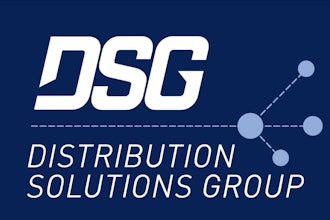
There has never been a relationship between a supplier and distributor that survived forever. With proper attention to details when negotiating your next distribution agreement, however, you may diminish the likelihood of a premature end to the relationship or costly litigation upon termination. Here are five rules to focus on when negotiating your next agreement.
Balance Pays Dividends
Distributors and manufacturers sometimes seek to gain advantage over their partner by incorporating a bias into the distribution agreement favoring the author and placing the other party at a disadvantage. This technique rarely enjoys the benefits intended. The best agreements maintain a balance of power between the distributor and the supplier. If the relationship begins with a biased agreement, that bias usually works against development of a solid relationship. Since the agreement is the foundation of the partnership, the author must use balanced clauses that elicit trust.
Each clause of the agreement should seek to strike a balance between the power of the distributor and supplier. If there is a paragraph outlining the duties and obligations of the distributor, there should also be a paragraph outlining the duties and obligations of the supplier. A unilateral clause frequently leads to the distrust of one party by the other. Distrust always works against development of the relationship and ultimately against sales and sales growth, the original purposes of the relationship and contract. Junior partners will ultimately understand that a biased agreement works to their disadvantage. Rule: Seek balance in the relative power of both parties in that next distribution agreement.
Term and Termination
Distributors and suppliers have preferred term periods ranging from months to decades. The majority of agreements nowadays specify an initial term of one or two years, with semiautomatic renewal that continuously adds a new year to the life of the agreement. The program is semiautomatic since renewal occurs automatically unless one of the parties sends a notice of intention to not renew within 60 days of the end of the current agreement. A term of one or two years merely sets initial expectations. Beyond the initial term, actual sales performance determines the duration of the relationship.
The Termination section of a representative agreement is arguably the most important. The parties must understand how they may terminate the agreement and the conditions under which their partners may terminate the agreement. Conditions related to termination are frequently the kernel that leads a party to file a claim. Allegations of wrongful termination are a frequent issue when sales partners take their problems to a court.
There are routinely two forms of termination in a distributor agreement: Termination for Convenience and Termination for Cause. Agreements may use only convenience, only cause, or both. Seasoned parties usually prefer to use termination for convenience only because they know that the parties won’t needlessly argue about cause when it comes time to unwind the sales partnership. Arguing about cause frequently leads to litigation. Suppliers routinely regret arguing about cause in court because the costs quickly escalate. Litigation acts as a massive drain on management time and a company’s financial resources. Companies can avoid litigation regarding termination by including a termination for convenience clause. Seasoned distributors and manufacturers understand that sales performance, not words in a contract, ensure a long-term relationship.
If an agreement includes a termination for convenience clause, there is no real need for a clause dealing with cause. Some people feel more comfortable when the agreement includes a termination for cause clause. Although it isn’t necessary, its presence does not represent a problem, provided that the contract also includes a provision for terminating the relationship for convenience. Rule: Include a Termination for Convenience clause in that next distribution agreement.
Avoid Rapid Geographic Expansion
When aligning with a new sales partner, it is important to assign a territory in which the distributor has proven itself previously. If the proposed territory is much larger than the new distributor’s established territory, the chances of an early demise are great. Experience suggests that the better policy is to open a new sales relationship in the distributor’s proven territory and expand the territory gradually upon success in the smaller territory. Rule: Don’t unfairly burden a distributor with a territory much greater than its recent experience and history. Expand into virgin territory cautiously.
Four Eyes versus Two Eyes
Most distribution agreements benefit from review by people experienced with creating and negotiating contracts. Sometimes attorneys review the contracts. Sometimes sales managers with contract experience review the contracts. The best results come when a both legal professional and a seasoned sales manager review the agreement simultaneously.
When a legal professional (and not a seasoned sales manager), reviews a contract, the resulting document can be legally acceptable, but commercially ineffective. When a seasoned sales manager (and not an attorney), reviews a contract, the resulting agreement can be commercially effective, but legally unacceptable. When a sales professional and a legal professional both review the agreement, the probability of a legal skirmish upon termination diminishes greatly. Rule: Have a legal professional and a sales professional review that next distribution agreement prior to breaking out the gold pens and champagne.
Due Diligence
The unwinding of a sales partnership between a supplier and a distributor usually begins with the dissatisfaction one party has with the other. Experience with both suppliers and distributors suggests that the issue that develops into irritation is poor due diligence. The only way to avoid the disappointment of both parties is to engage in the time-consuming and painstaking task of due diligence.
Without proper due diligence, each party’s expectations of the other is based on assumptions, occasionally valid but frequently invalid. When real world issues place pressure on those responsible for developing sales channels and line-cards, it’s easy to gloss over facets of due diligence and race to drafting the contract. Speeding through the due diligence process may yield an earlier date on the agreement. Unfortunately, speeding through the process usually brings unhappy endings. Rule: When planning to sign up a new supplier or distributor, begin with a very clear statement of the steps in the due diligence process. Then, stick with those steps before signing that next agreement.
 Balzer
Balzer























